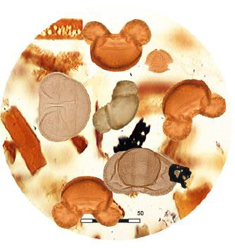15-17 October 2018 - Dipartimento di Scienze della Terra (Firenze)
ADELE BERTINI and NATHALIE COMBOURIEU-NEBOUT
(DST, Università di Firenze; UMR 7194 CNRS, Parigi)
The future of Mediterranean ecosystems and landscapes is clearly tied to water availability and global climate change. While modern vegetation data from the region provide a baseline for understanding relationships between aridity and vegetation composition, paleoecological records bring support for understanding vegetation responses at longer time scales. Paleoecological records show that aridity, as a feature of the Mediterranean basin, appeared early, gradually increasing up to the present time.
Italy represents one of the most informative Mediterranean areas to: (i) reconstruct the response of vegetation to various climatic stresses; and (ii) assess the likely future behaviour of Mediterranean plants. Furthermore, the Italy's rich geological and stratigraphical record makes it (iii) a significant source of information on the history of Mediterranean. This course focuses on understanding the:
1. response of vegetation/environment (from 2.6 Ma) to variations in climatic forcing on orbital and
millennial/submillennial (e.g. Heinrich events, D-O, Bond cycles) timescales;
2. driving and environmental context of the phases of migration and successive colonization of hominins;
3. interglacial features from 2.6 Ma for a better evaluation of the future and length of the Holocene.
The seminar, open to students, PhD and young researchers is carried out thanks to the Erasmus program and has the Patronage of AIQUA (Italian Association for the Study of the Quaternary).
Program







